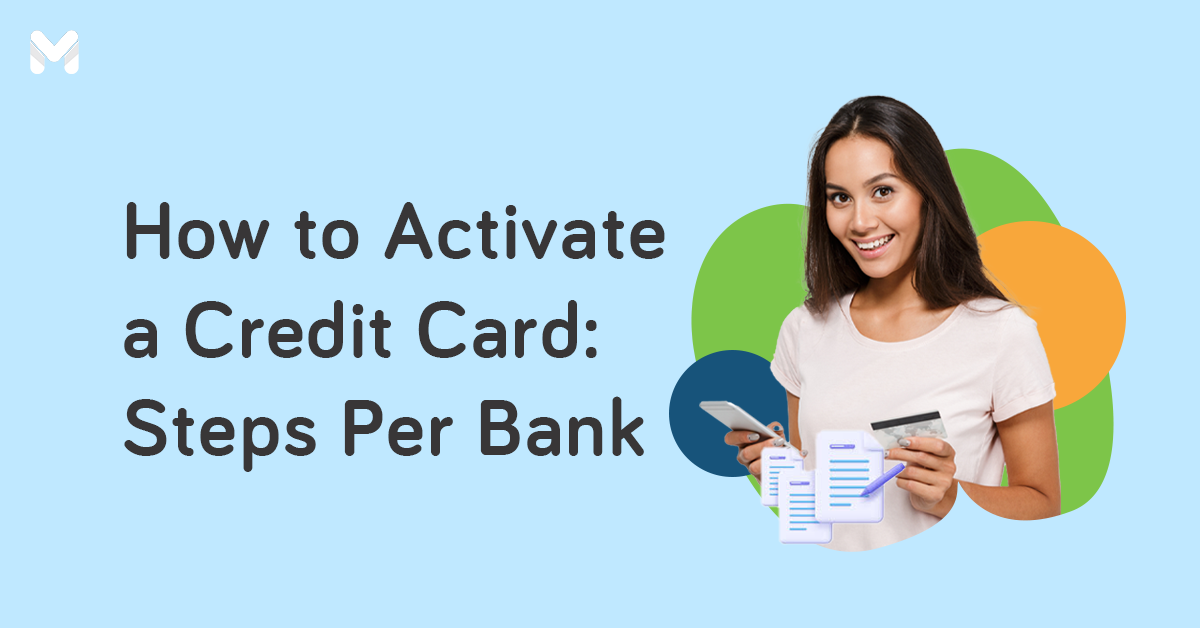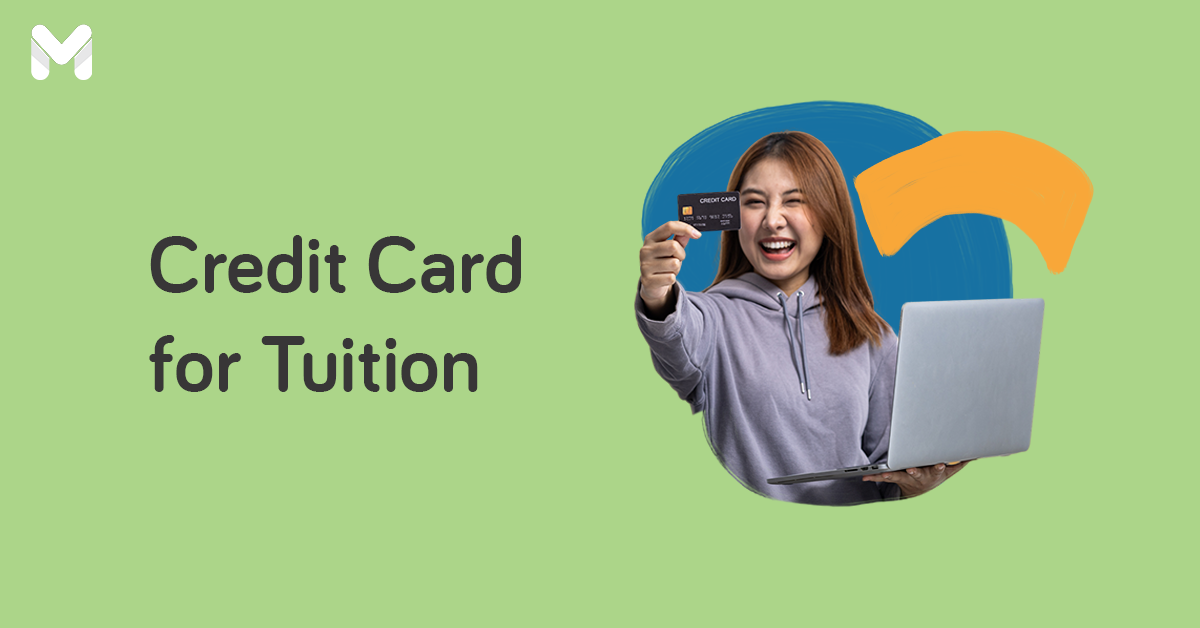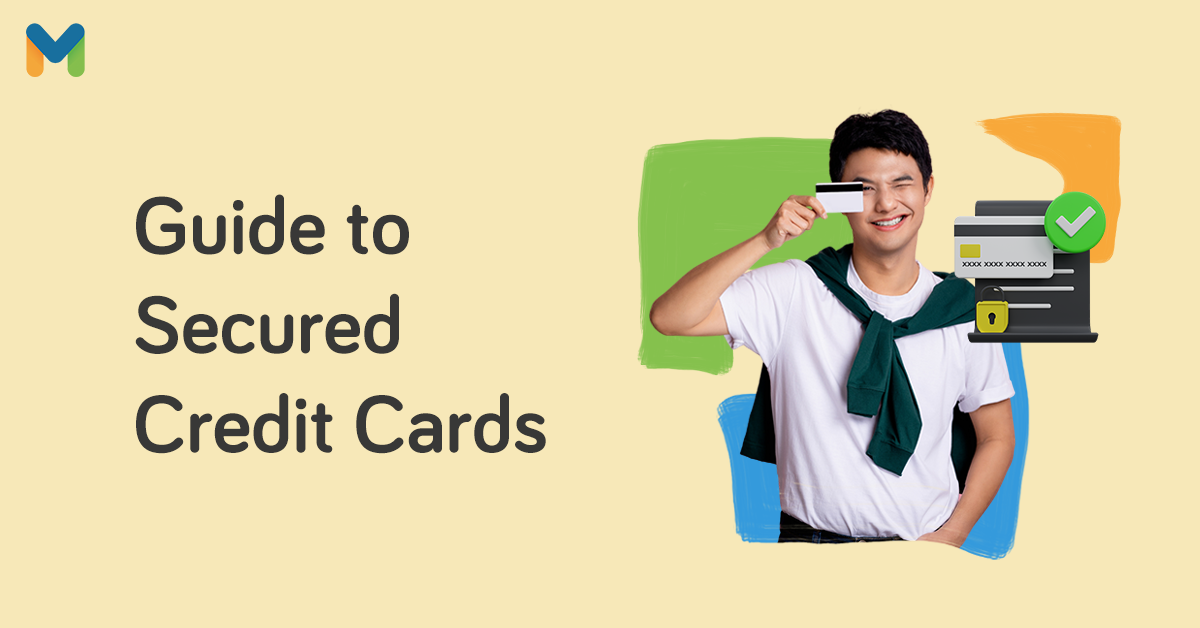When used responsibly, credit cards can help you manage your finances and fund daily expenses. They can also help you maximize your spending—some cards offer rewards, cashback, or miles!
With the convenience and perks they offer, however, it's easy to end up with a maxed-out credit card. Sometimes, it takes several purchases—other times, all it takes is one major transaction.
Getting charged an overlimit fee or declined for your next purchase is just the tip of the iceberg. You don’t want to start accumulating credit card debt next. In this article, learn how to avoid such a mistake before it’s too late.
What is the Meaning of a Maxed-Out Credit Card?
-May-22-2024-04-35-21-7265-AM.png?width=600&height=400&name=Pics%20for%20blog%20-%20600x400%20(7)-May-22-2024-04-35-21-7265-AM.png)
Simply put, maxing out a credit card means using up its credit limit or reaching the maximum amount you can spend on your card. For example, if your credit limit is ₱50,000 and your outstanding balance is ₱50,000, then you've maxed out your credit card.
❓ Can I Still Use My Credit Card Even if It's Maxed Out?
It depends on the card. If you haven't opted into your provider's overlimit feature, you'll get declined.
If you have, then yes, you can exceed your credit limit, but you can’t really know by how much. Banks may consider your payment history for over-the-limit transaction approvals, though.
What Happens When You Max Out Your Credit Card?
-May-22-2024-04-36-27-2764-AM.png?width=600&height=400&name=Pics%20for%20blog%20-%20600x400%20(8)-May-22-2024-04-36-27-2764-AM.png)
Is it bad to max out a credit card?
Ideally, you want to keep your credit card balance below your credit limit. However, unexpected expenses do arise from time to time, which may cause you to rely heavily on your credit card and max it out.
So what happens if you exceed your credit card limit?
👉 You Won't be Able to Use Your Credit Card
A card provides access to credit when needed. However, if you’ve already maxed it out, you’re eliminating this benefit. You can no longer use it for daily necessities.
Instead, you’ll be forced to take out a loan. As a result, you’ll become burdened with more debt and more payments.
👉 You'll Find it Hard to Manage Minimum Payments
A maxed-out credit card can strain your finances, especially if you make only minimum payments every month.
Plus, if your outstanding balance increases, your minimum payments will also increase. Interest rates, outstanding balances, and other charges pile up—to the point that you might not be able to afford them anymore.
Let's say your bank charges 3% interest. Your balance will grow by 3% every month until you pay it off.
👉 You'll Hurt Your Credit Score
Your credit utilization ratio refers to the amount of credit used versus the total amount of credit available. If you go over your credit limit, this will affect your credit utilization ratio, which in turn will hurt your credit score.
Should you decide to apply for a loan or another credit card in the future, your potential lenders may see your low credit score as a red flag and reject your application.[1]
👉 You'll Lower Your Creditworthiness
Your bank will see your maxed-out credit card as a sign that you don't have your finances in order, especially if you max it out repeatedly. They will not allow you to make additional charges to your card until you pay your balance.
Fees You Need to Pay for Maxed-Out Credit Cards
-May-22-2024-04-37-21-4690-AM.png?width=600&height=400&name=Pics%20for%20blog%20-%20600x400%20(9)-May-22-2024-04-37-21-4690-AM.png)
Apart from the outstanding balance and interest rates, you need to pay certain credit card fees, depending on your bank:
- Late payment fee - ₱300 to ₱1,000 or the unpaid minimum amount due, whichever is lower
- Overlimit fee - ₱500 to ₱800 per occurrence if your bank allows you to exceed the credit limit
- Multiple payment charge - ₱40 to ₱50 per payment
What to Do if You Max Out Your Credit Card
-May-22-2024-04-39-18-3546-AM.png?width=600&height=400&name=Pics%20for%20blog%20-%20600x400%20(11)-May-22-2024-04-39-18-3546-AM.png)
Here's what you should do once you’ve gone over your credit card’s limit:
Step 1: Stop Using the Maxed-Out Credit Card
You can no longer use your card, anyway—at least not until you get the balance down. Still, the key is to avoid more financial trouble.
If you feel like you can’t stop using your card, leave it at home. Delete your credit card information from online shopping sites and apps. Use the card lock feature to prevent unnecessary purchases.
Step 2: Restructure Your Budget
A maxed-out credit card is a sign that your budget needs an overhaul. Look at your credit card statements to determine why you had to max out your card. Is the debt due to events within your control or unexpected circumstances?
Once you figure it out, adjust your budget to avoid overspending. Track your monthly expenses and cut back on unnecessary spending.
If you don't have one yet, start building an emergency fund for critical expenses like a sudden hospitalization or home and car repairs. This way, you won't have to rely too heavily on credit for huge emergency expenses.
Step 3: Pay Off the Balance
If you can, pay the outstanding balance in full. Your bank might just allow you to start using your card again if you pay off a significant part of your balance.
Moving forward, check your balance regularly. Be more aware of your purchases and keep them below your available total credit limit.
Step 4: Get a Credit Limit Increase
It’s a bit of a reach, but you can try to request a higher credit limit. However, this does not guarantee you’ll get it.
Your outstanding balance and existing credit limit will be considered. Your bank might deny your request if they see you have a maxed-out credit card.
Read more: How to Request for a Credit Card Limit Increase Per Bank
Step 5: Get a Balance Transfer Credit Card
Do you still find it hard to manage payments even with all the tips above? It's time to consider a balance transfer credit card.
A balance transfer credit card offers lower interest rates, giving you breathing room and making it easier to pay off your balance. If you have multiple credit cards, you can also consolidate all payments with a balance transfer credit card.
Here are some options to consider:
| Credit Card | Balance Transfer Features |
|
UnionBank Platinum Mastercard
|
|
|
Metrobank Titanium Mastercard®
|
|
|
HSBC Red Mastercard
|
|
|
Security Bank Gold Mastercard
|
|
|
BPI Edge Card
|
|
How to Avoid Maxing Out Your Credit Card
-May-22-2024-04-38-20-8699-AM.png?width=600&height=400&name=Pics%20for%20blog%20-%20600x400%20(10)-May-22-2024-04-38-20-8699-AM.png)
Follow these helpful tips to avoid a maxed-out credit card in the future:
📌 Know Your Credit Limit
It's simple—if you don’t know your credit limit, you most likely won't put a limit on your spending.
To know your credit limit, check your online banking account or your credit card statement. You can also call your bank’s customer service hotline to confirm your maximum credit card limit.
Read more: What is Credit Card Limit and How Do Banks Determine It?
📌 Check Your Balance Regularly
On a related note, use your provider’s online banking service to check your outstanding balance. If you know how much credit you have left to spend, you can better plan how to keep your expenditures below that amount. You'll also see if you're about to max out your card, so you can adjust your spending accordingly.
🎁 Get approved and rewarded a gift of your choice worth up to ₱3,499
Eligible cards: Metrobank Titanium Mastercard®, Platinum Mastercard®, and World Mastercard®
Promo period: Until June 30, 2025
Get rewarded when you apply and get approved for your preferred card via Moneymax. Choose between eGift worth ₱2,000, Oral B Vitality 100 worth ₱2,095, or the Mi Smart Air Fryer 3.5L worth ₱3,499 🎁
Per DTI Fair Trade Permit No. FTEB-226753. Series of 2025. Terms and conditions apply.
Note: Applicant must be an existing credit cardholder in good standing for at least six months.
📌 Keep Your Balance Lower Than Your Actual Credit Limit
A big credit limit means you can purchase more. But that doesn’t equate to having a huge sum of money in the bank. It also doesn’t mean that you should go ahead and max it out.
To avoid going over your credit limit, set your own personal credit limit. Base it on your income and expenses—not the credit limit set by your credit card provider.
Ideally, keep your credit card balance low at 30%.[2] For example, if your credit card limit is ₱50,000, limit your credit card spending to ₱15,000.
This threshold applies not only to each of your credit cards but also to the total balance across all your cards.
📌 Manage Multiple Cards Carefully
It’s easier to overspend if you have more than one credit card. The amount of credit available to you is higher, giving you more opportunities to spend.
However, it doesn’t mean having multiple credit cards is bad. You just need to be extra careful.
Create a separate spending tracker for each card to stay up to date on your current balances. Pay off the outstanding balance for each card monthly.
Read more: No Overspending and Late Payments: How to Manage Multiple Credit Cards
📌 Avoid Making a Cash Advance
A cash advance usually imposes an interest rate higher than regular credit card purchases. If you make a lot of cash advance transactions, not only will you max out your card a lot faster—you’ll also pay more due to higher interest rates and cash advance fees.
Wondering, "Can I get a cash advance if my credit card is maxed out?" Most likely not, since the cash advance limit is a subset of your overall credit limit.
📌 Organize Your Budget
List down your monthly expenses to see where your money is going. Create a monthly budget plan and stick to it. Use your emergency fund for any unexpected expenses—don't rely too much on your credit card for these.
Should you use your credit card, make sure it’s to pay the bills or to purchase essentials.
📌 Avoid Emotional Purchases
If you’re feeling lonely or upset, stay away from your credit card. Postpone your trip to the mall until you’re in a better mood.
Purchases made while emotional may help you feel better for a while. But you'll suffer from buyer’s remorse later on, especially if you purchase something you don’t really need or want.
📌 Remember a Credit Card Isn’t Free Money
Research shows that people are willing to spend more when paying with a credit card instead of cash.[3]
Before you make a credit card purchase, always ask yourself: “Can I afford to pay it back in cash right now?” If the answer is no, don't buy it.
Treat each credit card purchase as though you’re actually using cash. You control your spending better that way. You can also focus on your financial goals and avoid expenses that won’t help you meet them.
The right mindset curbs spending and prevents a maxed-out credit card. Remember that whatever you purchase with your card, you need to pay it back on time.
Final Thoughts
Nobody wants to have to deal with a maxed-out credit card. Now that you know the consequences, you can follow the tips above to keep your spending from getting out of hand. As much as possible, keep your credit card balance low so you can afford the monthly payments.
Sources:
- [1] Why Was My Credit Card Application Declined? (Nerd Wallet, 2024)
- [2] How Much of My Credit Card Should I Use? The 30% Utilization Rule (Nerd Wallet, 2024)
- [2] Do you spend more with a credit card? (Bankrate, 2023)












![[UPDATE]_MB_CC_Choose_Your_Welcome_Gift_(June_2025)__1200x350](https://www.moneymax.ph/hs-fs/hubfs/%5BUPDATE%5D_MB_CC_Choose_Your_Welcome_Gift_(June_2025)__1200x350.png?width=438&height=128&name=%5BUPDATE%5D_MB_CC_Choose_Your_Welcome_Gift_(June_2025)__1200x350.png)



